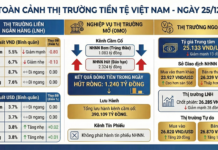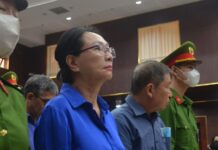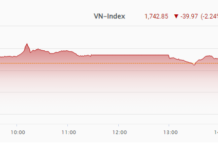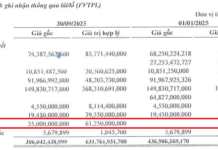On August 1st, the Standing Committee of the Secretariat, Tran Cam Tu, signed and issued Conclusion No. 183 of the Politburo and the Secretariat on actively deploying the operation of the two-level local government model, shifting the focus at the grassroots level to proactively managing socio-economic development, national defense, and security.
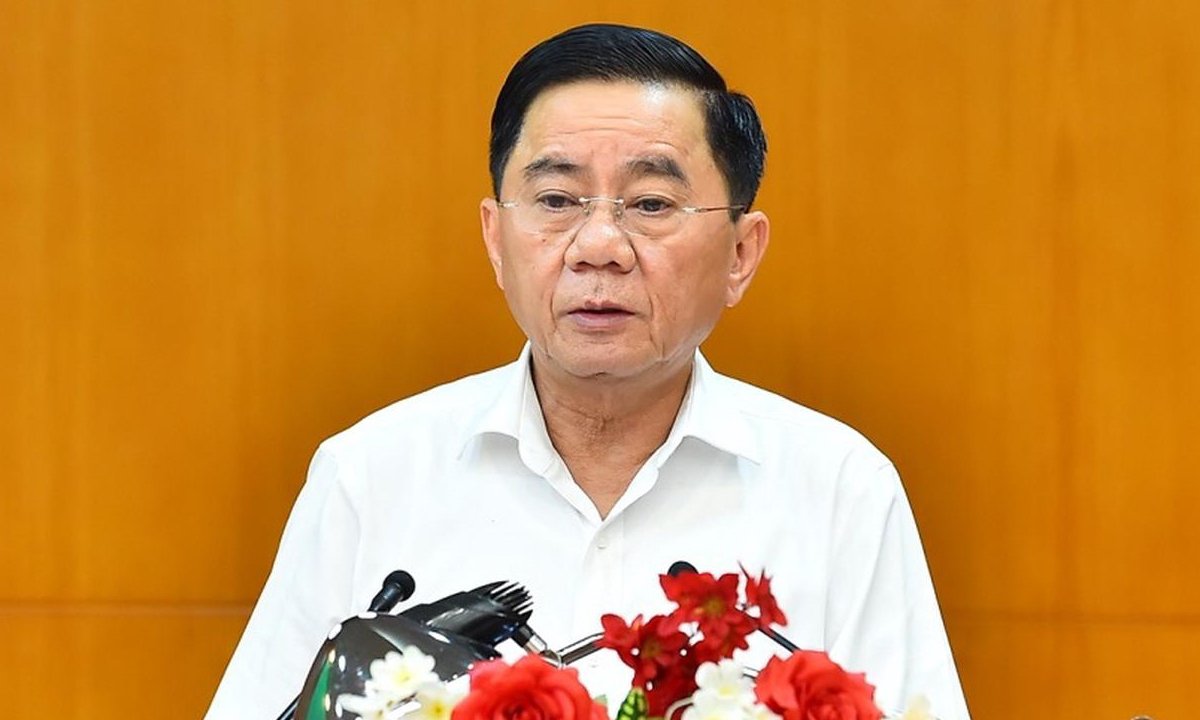
Standing Committee of the Secretariat, Tran Cam Tu.
The Politburo and the Secretariat requested that Party committees and organizations, from the central to local levels, continue to propagate and effectively implement relevant resolutions, conclusions, programs, and work plans. This will ensure the stable and seamless operation of the two-tier local government, providing better services to citizens and businesses.
At the same time, they must promote socio-economic development and organize party congresses at all levels according to the established plan. Party committees, organizations, agencies, and units are tasked with earnest and timely implementation, focusing on addressing the limitations and shortcomings mentioned in the Inspection Commission’s supervisory report.
Agencies, units, and localities must be proactive and creative in their implementation, adhering to their assigned functions and tasks without relying on higher authorities.
The Politburo and the Secretariat assigned the Government Party Committee to continue leading and directing an intense and effective review and completion of the institutional system. They must also amend and supplement legal provisions related to the organization and operation of the two-level local government, complete the organizational structure, build human resources, arrange and train personnel accordingly, enhance decentralization and delegation of powers, and innovate in allocating financial budgets for local governments.
The Politburo and the Secretariat requested that the Government Party Committee direct relevant agencies to assess the outcomes of the two-month implementation of decentralization and delegation of powers to local governments, especially at the commune level. Timely adjustments and supplementary measures should be made to ensure effective implementation.
The Government Party Committee should lead and instruct the Ministry of Home Affairs to collaborate with relevant ministries and sectors to promptly organize professional training and skill enhancement for commune-level civil servants. They should also develop a performance assessment tool to evaluate the quality of civil servants (to be completed by August 31).
The Government Party Committee needs to instruct the Ministry of Home Affairs to coordinate with relevant ministries and sectors to study and issue or propose competent authorities to issue regulations on policies. This ensures fairness among affected personnel during the organizational restructuring process, including those with 15 or more years of service in strenuous, toxic, or dangerous jobs or in regions with particularly difficult socio-economic conditions and who have reached retirement age.
The Government Party Committee should lead and direct the Ministry of Justice to promptly complete the review and synthesis of opinions from ministries and sectors. They must propose solutions to perfect the law, especially addressing inconsistencies between laws, decrees, and circulars regarding decentralization, delegation of powers, and authority delineation for the two-level local government model (to be completed by August 31).
The Politburo and the Secretariat assigned ministries, branches, and localities to direct the resolute finalization of policies and regimes for affected personnel due to organizational restructuring before August 31. After this deadline, the process will be concluded.
Ministries, branches, and localities must rigorously continue reviewing and investing in essential requirements, including digital signatures, digital certificates, human resources for data digitization (“correct – sufficient – clean – alive”), interoperability and reusability of digitized data, and software applications for public services and operations (household registration, land, business registration, taxation…). This will ensure the effective operation of the Commune-level Public Administration Service Center.
The Politburo and the Secretariat requested that provincial and municipal party committees continue to urgently strengthen the capacity of the commune level, ensuring both quantity and quality. They must also rearrange personnel for positions that are still lacking, proactively review and adjust personnel allocations among communes and wards to match practical tasks, ensuring the right people for the right jobs, matching their expertise and specialties. They must also direct the organization of party congresses at the immediate higher level of the grassroots-level party organizations and the commune-level party congresses according to the set timeline, ensuring quality (all these tasks must be completed by August 31).
Provincial and municipal party committees should take the lead in coordinating with central ministries and branches to implement training and capacity building for officials and civil servants at all levels. This should include socio-economic development in the new situation, modern administrative management skills, information technology application, and administrative communication…
As requested by the Politburo and the Secretariat, the provincial and municipal People’s Committees must promptly complete the issuance of regulations on functions, tasks, and organizational structures of specialized agencies at provincial and communal levels according to the new model, ensuring clear responsibilities and avoiding overlaps or omissions.
The Politburo and the Secretariat assigned party committees, provincial and municipal committees, central agencies, and party branches to propose the construction and concretization of personnel standards and evaluation criteria based on Draft Amendments to Regulation No. 89 (on the framework of personnel standards and orientation of evaluation criteria for leaders and managers at all levels), Regulation No. 214 (on the framework of personnel standards and criteria for evaluating officials under the management of the Central Committee, Politburo, and Secretariat), and Regulation No. 124 (on self-criticism and criticism and annual evaluation and classification for collectives and individuals in the political system). These proposals should be submitted to the Politburo for consideration and issuance.
Particular attention should be given to evaluation criteria for officials under the management of the Politburo and the Secretariat, with a high level of quantification, practicality, and comprehensiveness. These criteria should reflect political qualities, morality, lifestyle, management and leadership capabilities, and task performance linked to progress, efficiency, and quality of specific work products, suitable for the characteristics of each sector and field, in line with the assigned functions and tasks.
The Central Organization Commission is tasked with promptly completing the amendment and supplementation of regulations on personnel work for submission to the Politburo and the Secretariat for consideration and issuance, ensuring synchronized and uniform implementation across the political system.
The Politburo and the Secretariat assigned the Party Committees of the Vietnam Fatherland Front and mass organizations to lead and direct the study and issuance, within their competence, of the following documents: Guidance on the coordination mechanism between the Vietnam Fatherland Front and socio-political organizations at provincial and communal levels; Guidance on the working regulations of the Vietnam Fatherland Front Committee apparatus at provincial and communal levels according to the new organizational model; Guidance on financial management and various funds of socio-political organizations at the provincial level, especially the finances and assets of the trade union system (to be completed by August 31).
The Politburo and the Secretariat assigned the Central Inspection Commission to direct inspection commissions at all levels to strengthen the inspection and supervision of the implementation of tasks and contents according to the resolutions, conclusions, and directives of the Central Committee, the Politburo, and the Secretariat on the rearrangement of the organizational apparatus and the operation of the two-level local government model to ensure effectiveness and smoothness.
The Politburo and the Secretariat will meet once a month to discuss and evaluate the implementation of directives and conclusions. The Central Organization Commission is assigned to coordinate with the Government Party Committee, central agencies, and localities in preparing reports on the rearrangement of the political system’s organizational structure and the operation of the two-level local government model. The Government Party Committee, central agencies, and localities are requested to submit reports to the Central Organization Commission no later than the 25th of every month.
Prime Minister’s 8th Inspection of Long Thanh Airport: Targeting December 19, 2025 for Substantial Completion.
On the afternoon of August 2, Prime Minister Pham Minh Chinh visited the construction site of the Long Thanh International Airport project in Dong Nai province. He inspected the progress, motivated the workers, and chaired a meeting to expedite the development of this highly anticipated international airport.







